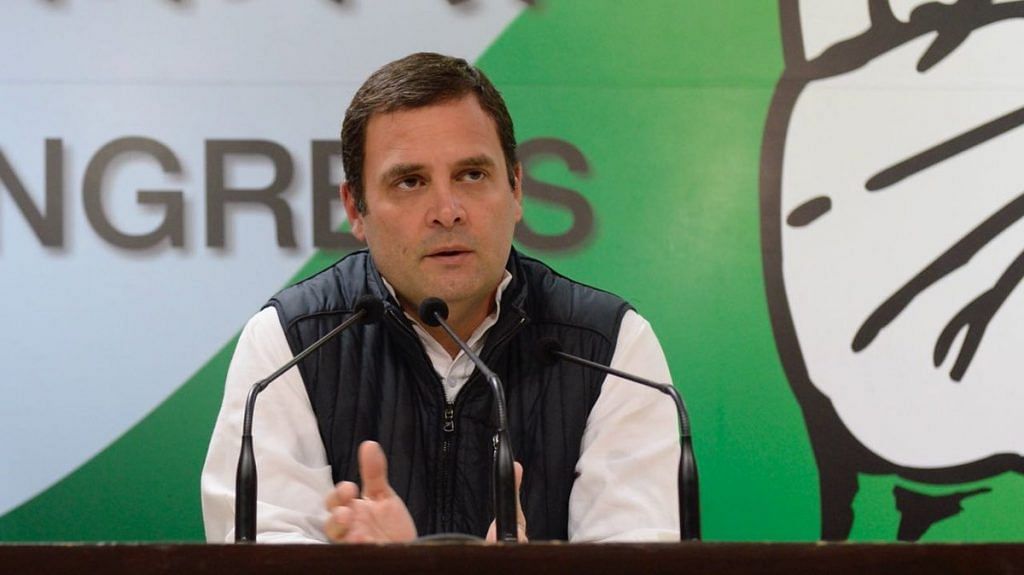Indian elections and national security have a seemingly unpredictable relationship.
The defeat in the 1962 war with China and the victory in the 1971 war happened immediately after elections earlier in the year and can’t be used as gauges. However, the Sri Lanka fiasco and Bofors took a heavy toll on Rajiv Gandhi, wiping out his government in the 1989 Lok Sabha elections. The victory in the Kargil War propelled Atal Bihari Vajpayee to a victory in 1999. The 26/11 Mumbai attacks were undeniably a massive intelligence and security failure, and yet in state elections a few days later, the Congress trounced the BJP. Confused? So am I.
While overarching trends are difficult to make out, there are some allegories that bear repeating. Subramanian Swamy, for example, recalls how when he met Deng Xiaoping, and the latter confided to him words to the effect of “we expected India to break up when we defeated you in 1962, yet all it did was wipe out calls for separatism from Tamil Nadu and bound you together stronger”. If memory serves me right, Rajiv Gandhi said at a Congress Parliamentary Party meet in 1989 that “India is strong in victory, but it is even stronger in defeat.” For the reader’s ease, I shall refer to this phenomenon as the Deng-Rajiv principle.
Also read: As BJP & Congress fight over surgical strikes, India’s stand on national security is exposed
It’s a pity, then, that this great leader’s son, Rahul Gandhi preferred internalising superficially applied European social democrat paradigms and ignored his own father’s wisdom. What was his cardinal sin? India, like any pre-industrial state was, is, and possibly till a post-industrial phase, will be, a fiercely nationalistic country. This is not to say Indians don’t accept that their leaders make huge security goof ups, or their leaders shouldn’t be criticised for it, but rather that they believe there is a time and place for such criticism and wartime is not it.
This is where Pulwama and Balakot effectively turned out to be Rahul Gandhi’s proverbial Waterloo.
Assume for a minute that everything the detractors of the Balakot strikes and the air battle that followed said were true, that India missed its targets, and the Air Force did not perform well on that day or the next. The Deng-Rajiv principle dictated, that Rahul Gandhi stay quiet or express some form of support. Instead, he and his press minions went on a rampage calling everyone from Prime Minister Narendra Modi, to the Air Force ‘liars’. A programme on the Congress politician-supported channel Tiranga TV went as far as to verbatim copy a Pakistan military-linked video regurgitating charges against an Italian journalist (who backed up the Indian version based on sources on the ground) simply to prove that India’s armed forces (and by extension, PM Modi) were incompetent.
It’s quite one thing to criticise your government, it’s another to end up echoing the official propaganda of your adversary, that too in a fiercely nationalist country, in wartime, on election eve.
While this is impossible to gauge, this is where the BJP’s “idea of India” as “a civilisational culture” with a deep connection to itself and its past, as yet unexplained by European ideas of a nation state, held true. If you want proof of this concept, look how well the Congress did in Punjab where Captain Amarinder Singh refused to question the effectiveness of military action and publicly congratulated the government and forces.
Also read: Research shows it makes sense for Narendra Modi & BJP to focus on national security in 2019
Nothing but anger against the Congress and its security PR strategy over Balakot strikes can explain the fact that the Congress has failed abysmally this election, gathering just 51 seats or seven more seats than its 2014 tally, at the time of writing.
There are two sides to this security coin. One is what has been discussed above, the fact that the Indian public is forgiving of security failures and does not like criticism at wartime (which it sees as borderline treason). But the other side of the coin (like in 1989) is anger against corruption in defence (which is equally seen as borderline treason). This is where Rahul Gandhi could have scored a victory over Modi with his “Chowkidar chor hai” campaign.
However, yet again, Rahul Gandhi has made the cardinal mistake of hurling allegations, without anything remotely resembling proof, not even circumstantial. This was compounded by a Supreme Court verdict, seen as exonerating the government, and the final disgrace of Rahul Gandhi having to apologise to the Supreme Court for misquoting it (never matter that he didn’t actually withdraw his allegations).
Also read: Rahul Gandhi’s Congress gets thumbs down, unlikely to cross three figures
While none of the above narratives seeks to attribute mono-causality, we must understand every bit adds up and, in this case, this is how the national security card played out. With the benefit of hindsight, we can assume (and in India, these things are always assumptions) that national security played a big role in the 2019 Lok Sabha elections.
The Congress’ corruption crusade never got off the ground and was seen as backfiring and alienating people. The party’s unintentional echoing of the Pakistani line on Balakot simply pushed that alienation past the point of no return.
Ultimately Rahul needs to decide what he wants to run, a European-esque NGO with internationally fashionable positions, or a political party in a nationalistic country. Till then, it is safe to say national security will always favour the BJP, unless Rahul Gandhi replaces his national security advisers.
The author is a senior fellow at the Institute of Peace and Conflict Studies. He tweets @iyervval. Views are personal.
